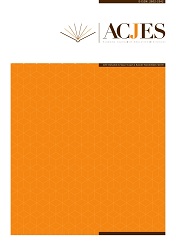INDICATORS OF PRODUCTIVE CLASSROOM TALK AND SUPPORTING DISCOURSE MOVES: A SYSTEMATIC REVIEW FOR EFFECTIVE SCIENCE TEACHING
INDICATORS OF PRODUCTIVE CLASSROOM TALK AND SUPPORTING DISCOURSE MOVES: A SYSTEMATIC REVIEW FOR EFFECTIVE SCIENCE TEACHING
Author(s): Yılmaz SoysalSubject(s): Theory of Communication, School education, Methodology and research technology
Published by: Abdullah KALDIRIM
Keywords: Productive Classroom Talk; Teacher Discourse Move; Systematic Review;
Summary/Abstract: This study intended to delve into productive classroom talk (PCT) typologies and sets of teacher discursive moves (TDMs) or talk moves supporting yielding dialogues in the context of teaching science. This study was arranged as an extended systematic review in which a content-based and thematically-oriented analysis of the selected works were carried out. Two frameworks; conceptual and technical, were invented and applied to the pooled studies. 67 research articles were selected from a larger pool and examined in a fine-grained manner. Five themes or indicators of the PCT were extracted. These are “clarity and intelligibility of the talks”, “critiques in the talk”, “accountability-justification-authority”, “intense discursively-oriented metacognitive activity” and “teacher as the discursive role model”. In addition, six sets of TDMs were extracted from the literature that are thought as supporting for the actualisation of a PCT indicator. These are “communicating”, “challenging”, “evaluating-judging-critiquing”, “monitoring-framing”, “seeking for evidence” and “modelling-rehearsing aspects of processes of science”. The relations between indicators of the PCT and supporting TDMs were reinterpreted by making concrete combinations and presenting in-class instances. It was concluded that several scholars worked through the generic lines of the PCT; however, within the examined studies, supporting TDMs were not attached to the productivity. One of the salient inferences of the present study is that whether science teachers hold a teacher-noticing pertaining the interrelations between the PCT and supporting TDMs. Several recommendations were offered for science teachers and science teacher educator particularly in terms of triggering and sustaining teacher-led noticing regarding rather sophisticated relationships the PCT and supporting TDMs. Practically, pedagogic noticing requires intentionality that is attainable in the presence of high quality professional development programs.
Journal: Academy Journal of Educational Sciences
- Issue Year: 3/2019
- Issue No: 2
- Page Range: 114-137
- Page Count: 24
- Language: English

